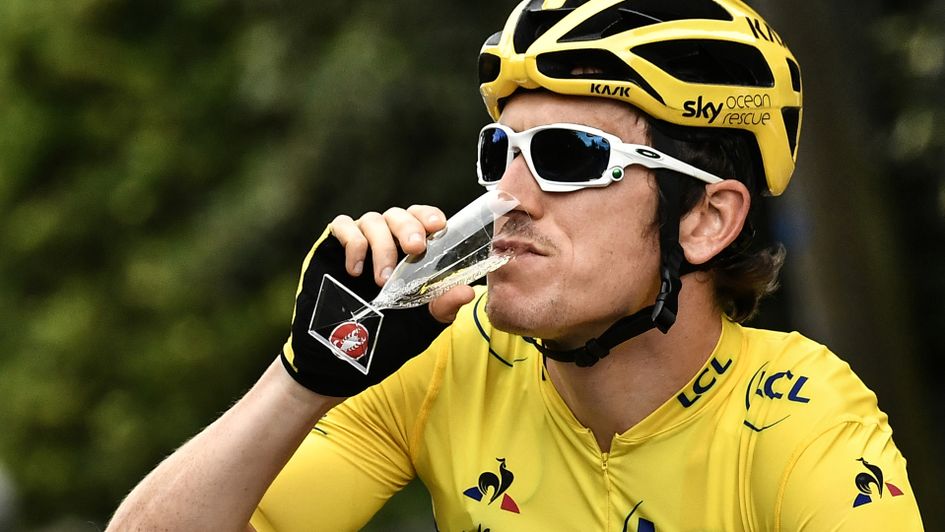This year's Tour de France route begins in Belgium and takes in five hors categorie climbs - get details in our stage-by-stage guide.
The 2019 Tour de France is designed as a celebration of 100 years of the yellow jersey.
But a route of ups and downs over some of the toughest terrain France has to offer ensures none will be handed out easily over the three weeks of the race.
Although the route contains only five hors categorie climbs - the most difficult grade - the next tough test is never far away in a race which starts going uphill in earnest on stage five and incorporates a punishing new finale at La Planche des Belles Filles.
Four passes are at an altitude of more than 2,000 metres so a couple of months after Richard Carapaz's surprise triumph at the Giro d'Italia, this could be another Grand Tour that favours those who excel where the air is thin.
Here PA Sport breaks down all 21 stages.
July 6
- Stage 1: Bruxelles to Brussel, (194.5km)
Off we go. The opening stage of the Tour touches on the best of Belgian cycling, delving into both the Flemish Ardennes of the Tour of Flanders and passing through the childhood home of the great Eddy Merckx, Woluwe Saint-Pierre. There are some rolling hills along the way but the bigger issue in this part of the world is usually wind. Nevertheless, expect a sprint in Brussels.
July 7
- Stage 2: Bruxelles Palais Royal to Brussel Atomium (27.6km team time trial)
Day two provides an early test for the supporting casts of those targeting yellow in the form of a team time trial. Recent history suggests this will be closely matched. In four TTTs at the Tour since 2011, only the 2015 edition left any decisive gaps between the top contenders.
July 8
- Stage 3: Binche to Epernay (215km)
Four categorised climbs in the final 45 kilometres of a punchy third stage should make things unpredictable as the race makes its way into France. Can the sprint teams keep things together over these late lumps, or will the Classics specialists come to the fore? Peter Sagan will surely have the day circled.
July 9
- Stage 4: Reims to Nancy (213.5km)
Funny things can happen in the first week of the Tour. Broadcasters could be counting on it, because stage four might otherwise be in danger of turning into a snooze fest. Just shy of 200 kilometres of near pan-flat roads precede one late lump on the horizon before a straightforward run to a sprint finish in Nantes.
July 10
- Stage 5: Saint-Die-des-Vosges to Colmar (175.5km)
The first proper hills of the Tour come as they ride into the Vosges, where stage five takes the peloton over four categorised climbs, with two rated as category two. With general classification hopefuls perhaps keeping their powder dry for the next day, this could be one where a breakaway prospers.
July 11
- Stage 6: Mulhouse to La Planche des Belles Filles (160.5km)
Here we go then. The GC battle should come alive over seven categorised climbs, four of them category one, including the summit finish at La Planche des Belles Filles. Recent Tour history suggests whoever wears yellow here will wear it in Paris - see Bradley Wiggins in 2012, Vincenzo Nibali in 2014 and Chris Froome in 2017 - but the Champs-Elysees is long, long way away. This year sees a change at the summit, with an extra kilometre including 24 per cent gradients and gravel sections.
July 12
- Stage 7: Belfort to Chalon-sur-Saone (230km)
After those exertions there is a recovery day of sorts with flat roads taking the race south west towards wine country. However, at 230km this is hardly a rest. Expect a long, slow day with every chance of a headwind harassing the peloton. Chalon-sur-Saone is where Britain's Brian Robinson won the second of his two Tour stages in 1959 - and by a margin of some 20 minutes. That will not happen this time though, with a sprint finish expected.
July 13
- Stage 8: Macon to St Etienne (200km)
The Massif Central does not boast the beasts of the Alps or Pyrenees, but with seven categorised climbs the Tour's route designer Thierry Gouvenou has made sure this will be a draining day on the legs. A day with multiple possible attack points is designed to break the control of the big teams - read Team Ineos.
July 14
- Stage 9: St Etienne to Briourde (170.5km)
A stage that finishes in Romain Bardet's home town is not really difficult enough for the great French hope to take victory, but how the locals would love to see the 28-year-old end Bastille Day in yellow with his family watching on. As for the stage, expect a big breakaway, full of Frenchmen, attack each other on the final climb which peaks 13 kilometres from the line.
July 15
- Stage 10: Saint-Flour to Albi (217.5km)
The peloton must wait until Tuesday for their first rest day but as they climb on their bikes one more time, riders will be grateful most of the second half of this stage is essentially downhill. The sprint teams will hope for a straightforward day.
July 17
- Stage 11: Albi to Toulouse (167km)
The last time a Tour stage finished in Toulouse, back in 2008, a young debutant by the name of Mark Cavendish took victory. After two tough years of illness, injury and misfortune the Manxman could certainly use a repeat 11 years on. With the mountains looming, it will be the sprinters' last chance for a while.
July 18
- Stage 12: Toulouse to Bagneres-de-Bigorre (209.5km)
And so to the Pyrenees, though stage 12 is just a warm-up. Two category one climbs, the Peyresourde and the Hourquette d'Ancizan, provide the focus before a long descent into Bagneres-de-Bigorre where Ireland's Dan Martin took his first stage win in 2013.
July 19
- Stage 13: Pau to Pau (27.2 time trial)
The only individual time trial of this year's Tour will be a test of strength over a rolling course, but also a test of the head. Go too deep and riders will surely be burned on the mountain tests to come over the weekend. The eventual winner of the Tour has finished in the top four of every long time trial since 2011 but this time they may prefer to save their legs.
July 20
- Stage 14: Tarbes to Tourmalet Bareges (117.5km)
The first of the five HC climbs comes on stage 14 - a short, sharp 117.5km race to the summit of the storied Tourmalet. The highest surfaced climb in the Pyrenees has featured in the Tour 87 times but this will be only the second stage finish at the summit.
July 21
- Stage 15: Limoux to Foix Prat d'Albis (185.5km)
The second summit finish in a row comes on a more traditional Pyrenean stage, which rolls over several testing climbs, sapping the legs and the minds. However, there is no tradition to the finish with the Prat d'Albis making its Tour debut.
July 23
- Stage 16: Nimes to Nimes (177km)
After the second rest day comes a pretty flat stage, though with constant changes of direction on a loop starting and finishing in Nimes, the sprinters' plans could be disrupted if the Mistral wind blows.
July 24
- Stage 17: Pont du Gard to Gap (200km)
And so towards the Alps, though stage 17 features none of the big passes on a day of gradual climbing up to Gap. This is the stage in the race where breaks are often allowed to stay clear as the battle for yellow rages behind, but this day has been made to be utterly unpredictable. A punchy final climb of the Col de la Sentinelle could be a springboard, while it's not inconceivable some of the sprinters survive in the main group.
July 25
- Stage 18: Embrue to Valloire (208km)
There may only be five HC climbs in the entire Tour, but two of them come in a single day as the riders tackle the Izoard and the Galibier before dropping down to the finish in Valloire. The stage winner should come from whichever group first crests the Galibier - appearing for the 60th time as the Tour's most regular Alpine venue - and this could be a decisive day overall.
July 26
- Stage 19: Saint-Jean-de-Maurienne to Tignes (126.5km)
Stage 19 is a leg-sapping day designed to test the resolve of anyone planning a late move in the general classification. The Iseran - at 2,770m the high point of the Tour - comes in the middle of the stage and casts a long shadow before the shorter climb to Tignes offers an opportunity for attacks.
July 27
- Stage 20: Albertville to Val Thorens (130km)
The last chance saloon for GC hopefuls does not look an inviting one. The final climb of the Tour is the 33.4km HC slog up to Val Thorens. If ever there was a Tour designed for a true climber, one with only a handful of time trial kilometres and four HC climbs in the last three days could be it.
July 28
- Stage 21: Rambouillet to Paris Champs-Elysees (128km)
There are two big questions on the final day. Will the yellow jersey winner choose a few glasses of champagne or, as Geraint Thomas did last year, prefer a beer or two as they celebrate along the roads of the Parisian suburbs? And which sprinters will have survived the mountains in order to battle it out on the Champs-Elysees?









